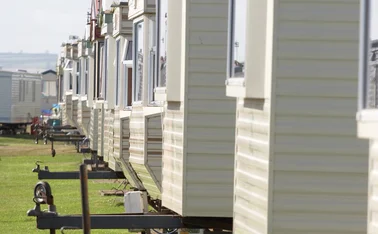
Post Europe: Growth in the marine market

New entrants are popping up in the European marine market on a regular basis yet report say rates are softening as there is over capacity. Jakki May takes a look at the market to assess what the real state of play is.
Marine by its very nature is international so it is no surprise that marine insurers are equally international in their outlook in serving key maritime regions such as the Mediterranean.
And marine markets are constantly changing to reflect demand. Romania, for example, is said to be experiencing a boom as it receives increased exports from Istanbul.
The news in March that insurance broker Howden was looking to enter the offshore energy and marine markets was the first of a number of expansions in marine classes this year. Ironically, just as names such as Howden and Cooper Gay Swett & Crawford were discussing expansion, broker Marsh was warning of potentially tough times ahead.
Losses continue
The International Union of Marine Insurance reports major casualties at sea continue at a disturbing level. The number of incidents for vessels of more than 500gt reported in 2010 followed the negative trend of the previous four years, with 623 serious losses reported to date for 2010, a similar figure to 2009. This means that 2010 joins the five worst vessel loss years in the last 17 years.
In response to this IUMI said: "The pattern seems to dash hopes raised a year ago of a reversal in casualty experience when shipping activity had slowed as a result of recession in many leading nations."
"The pattern seems to dash hopes raised a year ago of a reversal in casualty experience." IUMI
More bad news
Meanwhile, there is more bad news for the sector as North P&I Club postponed the launch of a proposed fixed-premium product for hull and machinery cover until market conditions improve. The launch was originally scheduled for 1 July.
North P&I Club chairman Albert Engelsman says: "Having undertaken a detailed investigation into current market conditions, North has reluctantly decided to postpone the launch of its hull and machinery product until such time as conditions improve."
Instability influence
North joint managing director Alan Wilson adds: "There were a number of factors influencing the club's decision, including the current instability in the insurance markets and in the economy generally. It also became apparent that insufficient new business could be written at a suitable level to make the product financially viable in the short to medium term.'
However, with its plans to expand into marine, Howden justified its move by saying it was all part of a bid to diversify its international book of business. Back in March, Tim Coles, chief executive of the Hyperion-owned broker, told Post: "We are strong in liability and property & casualty but we don't do offshore, energy and marine and aviation.
"We are very keen to diversify our capability further. We want to target the offshore energy and marine insurance markets." Beyond that he is not willing to comment.
"It also became apparent that insufficient new business could be written at a suitable level". Wilson
New entrants
Meanwhile last month CGSC announced the establishment of a specialist marine insurance broker, Junge Verzekeringsmakelaars NV, in Antwerp. Junge & Co claims to be Germany's leading marine insurance broker and this is its first subsidiary to be established outside Germany. The firm said: "The launch will considerably enhance Junge's ability to provide bespoke risk placement services tailored to the unique needs of marine clients in Benelux countries and the wider European market." It added further expansion in Europe and overseas is planned in the near future.
Yet Marsh released a statement saying: "Buyers of marine insurance are likely to see a continuing softening of insurance rates in 2011", and its research revealed marine insurance rates fell in 2010, driven predominantly by abundant capacity, light claims experience and the slowdown in world trade.
Falling demand
Marcus Baker, chairman of Marsh's marine practice, says: "Falling demand meant fewer ships carrying less cargo at slower speeds. This directly led to a reduction in the number and size of claims. In addition, plentiful insurance capacity has encouraged insurers to sacrifice underwriting profit for market share."
Added to that, the broker is also warning ship owners are becoming increasingly concerned about the financial consequences of a rise in ship charterers filing for bankruptcy. Nick Roscoe, a managing director in Marsh's global marine practice, explains: "The risk of ship charterers defaulting has increased since the global financial crisis. Companies with ships on charter are exposed to loss of revenue if their charterer folds or administrators force a renegotiation of terms." Marsh has, therefore, developed a product to help protect clients, a move which Mr Baker believes is essential in terms of surviving in these current competitive conditions.
"Falling demand meant fewer
ships carrying less cargo at
slower speeds." Baker
Best practice
He says: "In this kind of a market, standing out from the pack in terms of best practice risk management is critical to securing the best terms. In most parts of the marine market, underwriters are willing to take a long-term view if they believe their relationship with the client is sufficiently strong. They are also willing to compete aggressively for attractive new business."
Taking a different approach is what Demian Smith, global head of marine at specialty insurer Torus, believes will set his team apart too. Torus launched its marine division in 2010 with a five-year plan to deliver a global marine capability.
Making inroads
"The key," he says "is that European development ties in with Torus' overall strategy." Mr Smith explains Torus has made significant inroads in Europe by acquiring Glacier Insurance and taking on its marine business in Germany.
However, he stresses, it is important not to buy for the sake of buying, but to make acquisitions where Torus can bring products clients need and provide the right expertise to the market. "We are looking for opportunities where we can add value." From Germany, the most natural expansion will be into France and Italy, where Torus already has some marine business.
"In most parts of the marine market, underwriters are willing to take a long-term view." Smith
Sense of identity
He continues: "In most parts of the marine market, underwriters are willing to take a long-term view and where you have a large insurer, you will find that much of their business flows through locally domiciled players. To be successful you have to show commitment - not just look for any opportunity, but there is a need for innovation and new products."
Mr Smith sees acquisition as a natural way to grow in Europe "because Torus is building for the long term. This is not a short-term play. We are entering markets in a responsible way and still growing business profitably despite the soft market".
Few signs of drivers
So far he sees few signs of a change in market conditions in Europe and few signs of any drivers from incumbent carriers developing. He also says: "For many of the large continental insurers, marine business is not necessarily profitable. Sometimes it appears insurers want to offer hull and machinery classes as a service to clients or because it is important for the business to be seen to offer these lines of business.
"The incumbent carriers do not seem to be driving changes in the domestic markets. The opportunities for new carriers such as Torus will be through a different approach to product development and distribution and this may act as the catalyst for change in the future."
Only users who have a paid subscription or are part of a corporate subscription are able to print or copy content.
To access these options, along with all other subscription benefits, please contact info@postonline.co.uk or view our subscription options here: http://subscriptions.postonline.co.uk/subscribe
You are currently unable to print this content. Please contact info@postonline.co.uk to find out more.
You are currently unable to copy this content. Please contact info@postonline.co.uk to find out more.
Copyright Infopro Digital Limited. All rights reserved.
As outlined in our terms and conditions, https://www.infopro-digital.com/terms-and-conditions/subscriptions/ (point 2.4), printing is limited to a single copy.
If you would like to purchase additional rights please email info@postonline.co.uk
Copyright Infopro Digital Limited. All rights reserved.
You may share this content using our article tools. As outlined in our terms and conditions, https://www.infopro-digital.com/terms-and-conditions/subscriptions/ (clause 2.4), an Authorised User may only make one copy of the materials for their own personal use. You must also comply with the restrictions in clause 2.5.
If you would like to purchase additional rights please email info@postonline.co.uk








